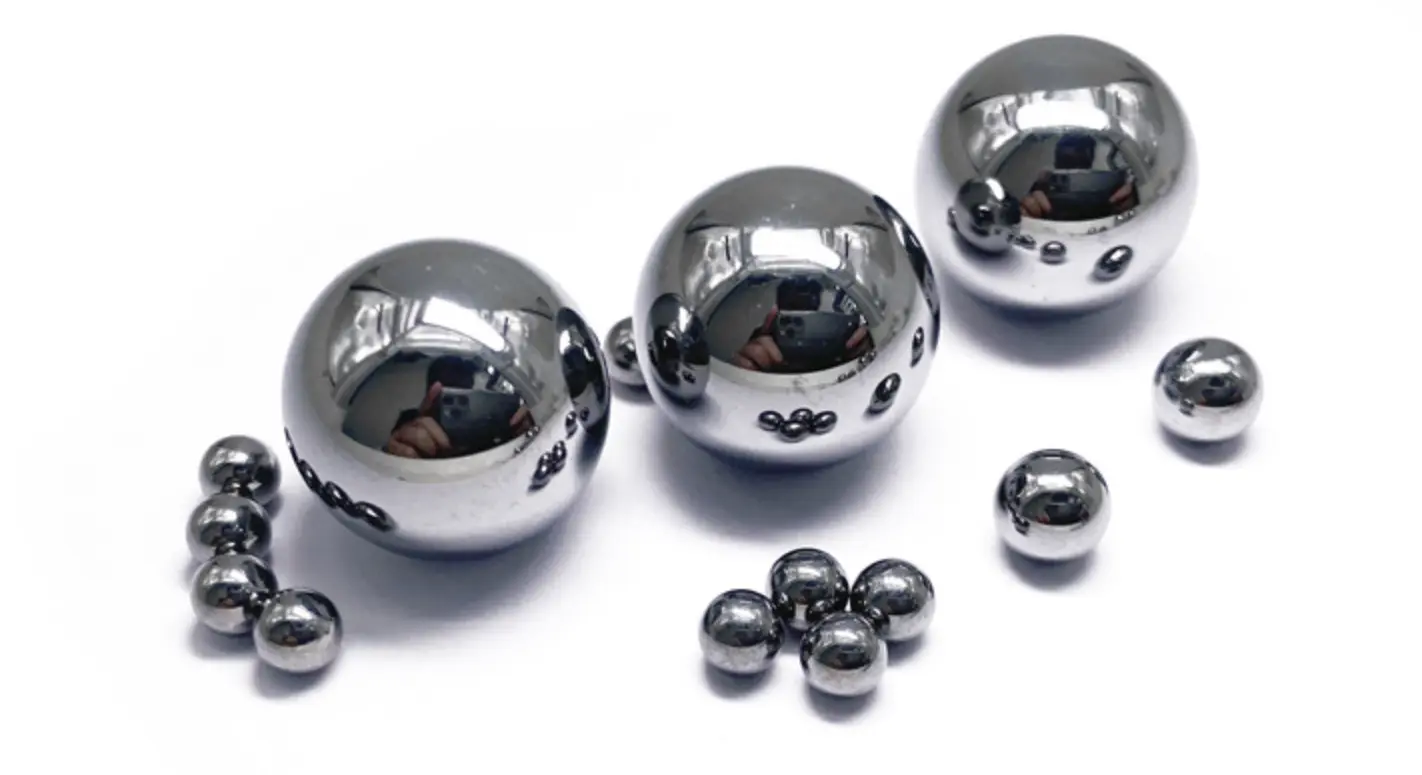What is the difference between cemented carbide ball and steel ball
Carbide ball and steel ball have their own advantages and disadvantages, according to different use occasions and needs to choose the appropriate material. The main differences between cemented carbide balls and steel balls are as follows:
The material composition is different: the main component of the cemented carbide ball is tungsten, cobalt and other metals, while the steel ball is mainly composed of carbon and iron.
Alloy ball
Hardness is different: The hardness of cemented carbide balls is usually between HRA80-90, which is much higher than that of ordinary steel balls, so it has better wear resistance and corrosion resistance.
The density is different: the density of cemented carbide balls is usually between 14.5-15.0g/cm³, which is about 2 times higher than that of steel balls, so it has superior application performance in some occasions that require high density.
Corrosion resistance is different: cemented carbide balls have good corrosion resistance and can be used in corrosive environments such as acid and alkali, while steel balls are susceptible to corrosion.
The manufacturing process is different: tungsten carbide balls are usually processed by hot isostatic pressing, vacuum sintering, cold pressing and other processes, while steel balls are mainly manufactured by cold heading or hot rolling.
Different applications: cemented carbide ball is suitable for high strength, high wear resistance, high temperature, corrosion and other harsh environment, such as petroleum, chemical, aerospace, aviation and other fields; The steel ball is suitable for general mechanical applications, such as bearings, transmission systems, shot blasting, welding and polishing.
In summary, there are significant differences between cemented carbide balls and steel balls in material composition, hardness, density, corrosion resistance, manufacturing process and application occasions. The choice of which sphere should be based on the specific use of the occasion and needs to decide.

Your email address will not be published. Required fields are marked with *

